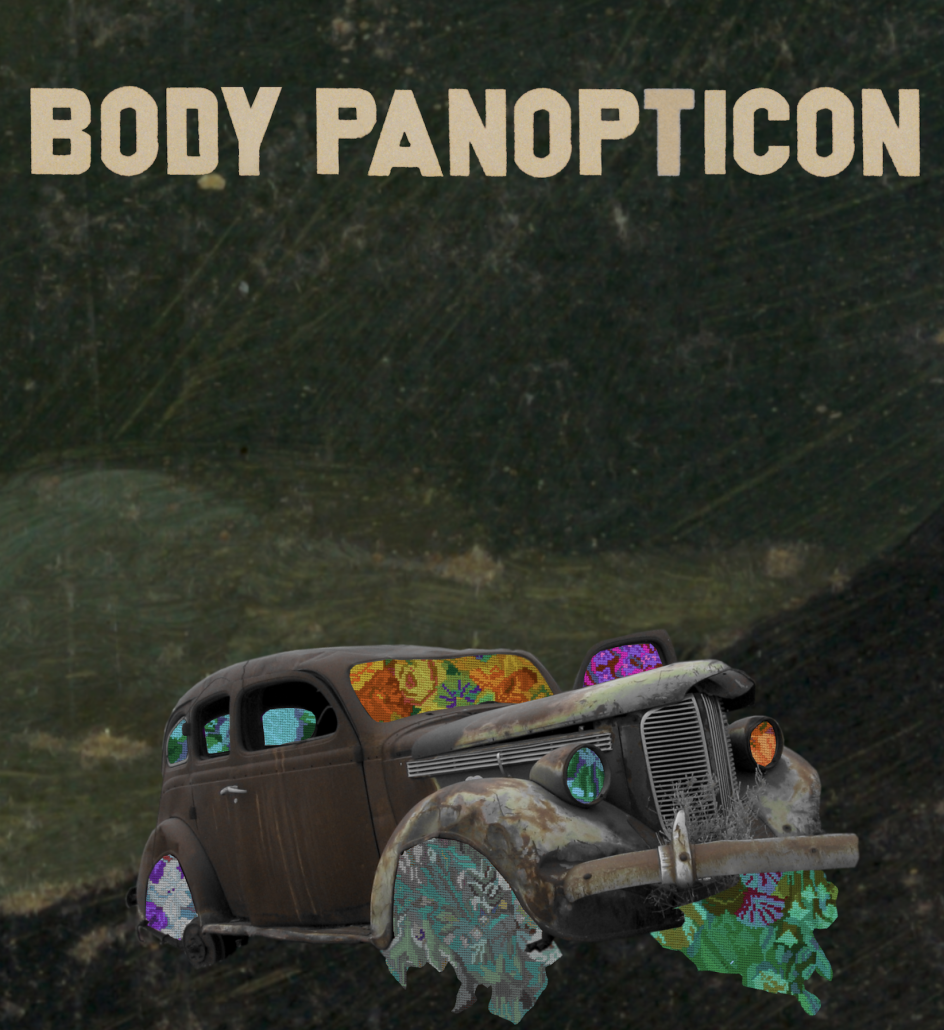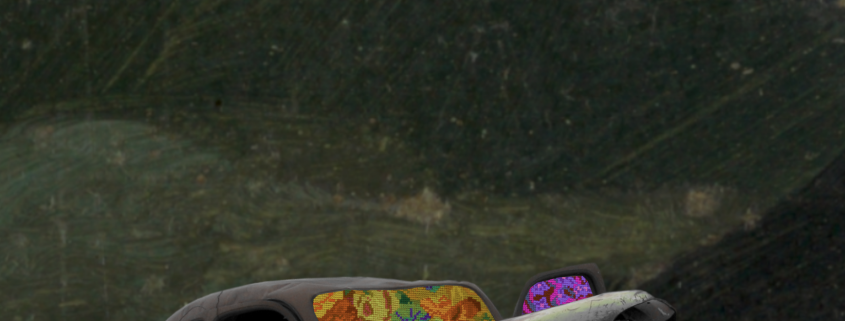Schoettmer brings poetry to the mainstream

Hannah Schoettmer wants to change the narrative around poetry.
Schoettmer, a junior majoring in cinema and media studies, debuted her first poetry collection, “Body Panopticon,” on Oct. 5. The chapbook is a compilation of Schoettmer’s poetry from the last two years. She consolidated 300 pages of work into the neat 26 pages available from Bottlecap Features, a subset of small indie publishing house Bottlecap press. Bottlecap Features is dedicated to publishing one chapbook weekly.
For Schoettmer, the hardest part of writing poetry is the honesty required by the form.
“There’s always an easy way out, there’s always an easy conclusion that you can draw on what you’re writing. And oftentimes, that’s not the essence of what you’re trying to say,” she said. “I like to think of poetry as a way to cut to the heart of something. Oftentimes, I’ll take something that may have happened or something that I’ve seen happen or I read about, and invent a language around it and a world around it, that lets me tell the truth about it.”
Still, she finds herself especially drawn to poetry when she feels there is no other way to express her complex thoughts, especially on fleeting moments that are often overlooked and forgotten.
“A poem is sort of like a Polaroid,” she said. “In that, not only are you focusing on a single scene in a single moment but there’s an ephemeral reality to it. That poem is the only way that could be iterated.”
Her collection, “Body Panopticon,” features poems that are not necessarily connected, but follow the same themes of Midwestern and Southern pastoralism, queerness and legacies of abuse. However, as she writes, Schoettmer wants to make it clear that what she writes isn’t necessarily her.
“I think this is a stereotype around poetry — they assume that everything that is written is literal… If a fiction writer goes up and reads something in the first person, you don’t assume that happened to them, you assume it’s fiction. So, I think the conflation of poetry and nonfiction is just something that is just strange to me,” Schoettmer said. “In synthesizing things into a poetic form, I take it from myself, and I give it away.”
Still, the themes included in the book are ones that she has “been chewing on in [her] brain for the past couple of years and crafting them into something that makes a larger statement.”
Despite her intense passion for poetry, she only began exploring it as a creative outlet during her senior year of high school. She started her writing journey focused on fiction. Originally, she wrote off poetry as a “dead art form” due to the fact she was only ever exposed to the works of “a bunch of dead white guys and maybe Emily Dickinson.” It was only once her creative writing teacher exposed her to contemporary poets that she fell in love with the medium.
“People think poetry is boring because the poetry that people are exposed to is boring,” Schoettmer said. “You just have to purge high school English and look out into the great horizon.”
“I don’t see myself in ‘The Road Not Taken.’ Or, I do but come on, let’s move on, let’s keep going,” she joked.
Schoettmer suggests people look for contemporary writers like her self-assigned “poetic mothers,” Diane Seuss and Denise Duhamel.
“It’s like, why do you read a novel from 2017 instead of a novel from 1935? Because it’s from you, it’s from your world and your generation, and so it’s more accessible in that way,” she said. “There’s all types of [poetry], there’s genre poetry, there’s weird formal stuff going on, sound poetry, visual poetry, there’s really something for everyone.”
Schoettmer’s former roommate, Christine Im, said she had never thought about poetry before rooming with Schoettmer.
“It never really hit me to the heart why people would write or read poems,” Im, a junior majoring in health and human sciences, said. “But after meeting Hannah, who was so passionate about her work, I started seeing a bit of the behind-the-scenes work and why people might find poetry so appealing.”
When Schoettmer began the process of editing the collection, Im provided support in ordering the poems. Although she said it was nothing “formal,” she believes Schoettmer recruited her help to make the process more “interpersonal.”
“It’s really important to me to share work and create spaces in which other people can share work,” Schoettmer said. “Because it’s lonely and isolating, oftentimes, doing any type of writing, and bringing that into the community and space is important.”
On Thursday, Schoettmer will read selections from her chapbook at Small World Books in Venice, and she invited other writers to share their work at the event as well. Although she alleges L.A. is nowhere close to New York in terms of literary events, she said, “it should be, and it can be because there is interesting work being done here.”
“The idea is just to create this space for writers to voice their works and share them with readers, especially young writers, up-and-coming writers,” said Tanaayaa (Tania Apshankar), a senior majoring in creative writing who will also be reading at the event.
“Reading is a sensory event. You’re listening to someone, you’re listening to the emotion, you’re listening to the reactions of people around,” Tanaayaa said. “I think that events like these help build community in terms of inspiration for other writers, and also just a space to really feel like your art is being heard and being absorbed by someone else.”

